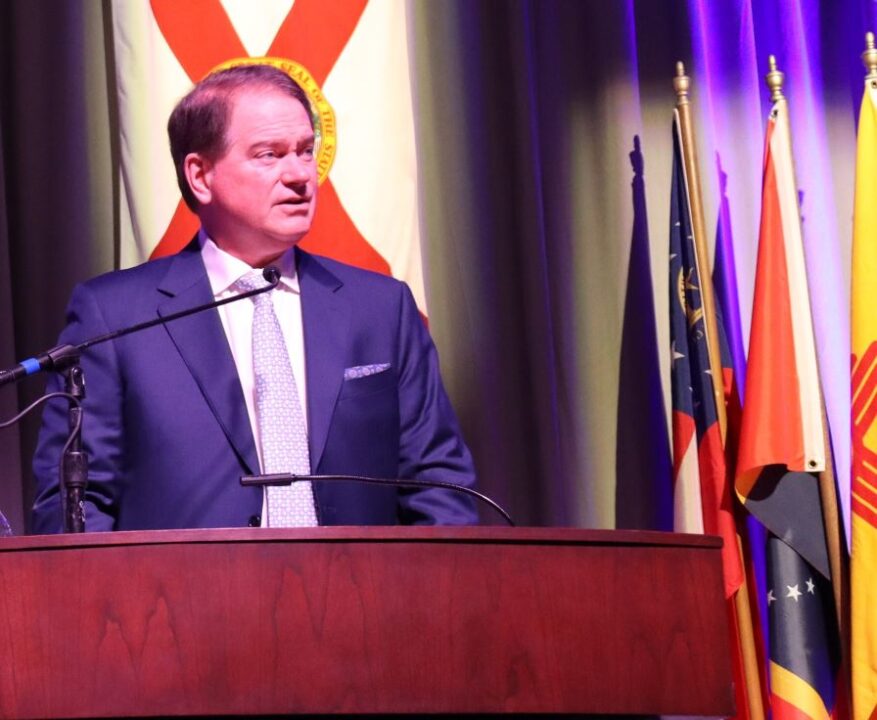U.S. Takes Flak for Doha Failure
The United States came in for criticism on December 2 from trade and diplomatic officials after extensive ministerial talks failed to break an impasse on framing a global tariff-busting pact, the Wall Street Journal reports.
Whether it is trade in commodities, such as cotton or bananas, or manufactured goods, like cars and computers, the world’s largest economy was singled out for holding up the Doha Round of negotiations to free up global commerce.
Although President Barack Obama was among leaders of the Group of 20 emerging and developed nations who endorsed a decision to seal the Doha Round by 2010, Washington still lacks political will to see the deal through, several international trade officials suggested.
The officials, speaking at the sidelines of the World Trade Organization (WTO) ministerial meeting in Geneva, said the Obama administration did not live up to expectations in “marketing” the Doha deal to the nation’s powerful legislature.
“I think political will can only be demonstrated when you have the political support coming from inside your own country and this is something that I don’t know whether one can really say that one sees this in the major negotiating parties,” former WTO chief Supachai Panitchpakdi told AFP.
An European diplomat was more direct, saying: “There is no sign today that the Americans are ready to go forward.
“They want more concessions for a more acceptable package (for the US Congress.) Now, the problem is to find a way without damaging what has been achieved so far,” said the diplomat, speaking on condition of anonymity.
But U.S. officials say it is keeping its options open, although U.S. Trade Representative Ron Kirk reaffirmed Washington’s commitment to concluding the Doha round.
In Geneva, Kirk met with counterparts from all regions. His key message was that trade-driven economies should further open up their markets to achieve a “balanced” Doha deal.
“The WTO’s vocation of economic growth and development requires a Doha outcome that goes beyond just capturing little more than the status quo in terms of market access,” he said.
Still, experts say more needs to be done at home.
“If the Obama Administration wants to have a significant proactive trade policy, it will need to persuade the Congress to renew fast-track authority at least for the WTO negotiations, so that it can attempt to salvage the Doha Round,” said economist Marcus Noland of the Washington-based Peterson Institute for International Economics.
In December 2008, when there was virtual agreement on the so-called final text of the Doha deal, the United States stepped aside, some negotiators said.
Washington had then questioned the failure of China and India to come aboard a tariff cutting plan for industrial goods and cited “special” privileges sought for some farm products by developing nations.
Some thought that a change in trade ministers in the United States as well as India following the 2008 debacle would help set the ball rolling for a successful outcome of the Doha Round.
But as French External Commerce Minister Anne-Marie Idrac lamented, “Doha does not seem to be fully on the agenda of the United States.”
It was same for India, she said, adding that the Doha “crisis is far from being eased.”
Meanwhile Reuters reports that impatience with the glacial pace the negotiations has prompted calls for the round to be smashed into smaller and more digestible mini-deals that could be agreed quickly.
Ministers from both rich and poor countries expressed frustration at having to wait for an overall Doha deal to be wrapped.
That has caused big delays and blockages in the negotiations, now in their ninth year.
South African Trade Minister Rob Davies said that subsidies to U.S. cotton growers, which have he claims have suppressed global prices and hurt African producers, should be cut before the eventual Doha deal. “That would be fair and just,” he said.
And Burkina Faso and other West African cotton producers threatened in Geneva to launch WTO litigation against Washington over the U.S. subsidies, saying “We cannot wait forever because our entire cotton industry will disappear.”









